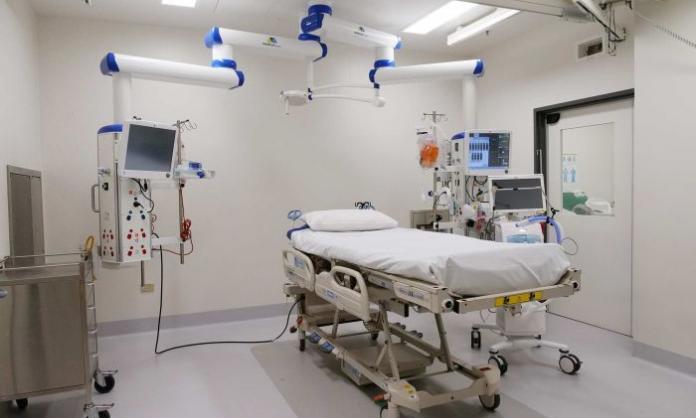Scott Morrison’s latest bailout package, which includes a wage subsidy of $750 per week, is nowhere near enough to save us from the devastating health and economic crisis that is now unfolding.
Some jobs will be saved, and some workers will end up getting more money under Morrison’s scheme than they would on the dole. That’s undoubtedly positive. But the package will not prevent a huge number of people working for small businesses from being sacked. The array of exclusions means that a million or so casuals who have not been with their employer for more than a year, and numerous other categories of workers, including those on temporary visas, won’t get a cent.
Every worker made redundant in this crisis should immediately receive as a very minimum the average wage. Morrison’s $1,500 per fortnight JobKeeper payment will be a substantial pay cut for many workers – not much more than the minimum wage and only about 70 percent of the median wage. And under Morrison’s scheme, workers won’t get payments until the end of the first week of May at the earliest. Then it will last for only six months, when people will be put onto the dole.
This means that some workers who lost their jobs two weeks ago will have to go without any income for almost two months. If you have no savings or friends and relatives to borrow money from, you will be flat out surviving during this health emergency. And such a long delay in getting money into workers’ hands will only hasten the pace of the economic collapse.
The harsh reality is that the bulk of the money in Morrison’s latest bailout package, as with his two previous packages and the various state government packages, is not aimed at protecting the jobs and livelihoods of workers, pensioners and the poor, but at preserving the profits of big business.
Governments throughout the world are throwing trillions of dollars into propping up the banks and other huge corporations. But this will not prevent a devastating depression and tens of millions of workers being thrown on the scrap heap. We see that clearly here in Australia, where Qantas and Virgin Airlines received a $675 million government bailout package but then immediately stood down 28,000 workers. Now Qantas is demanding another $4.2 billion from the government without out any guarantee to save jobs.
Key industries like the airlines, and the jobs of the workers they employ, need to be maintained. But rather than handing over billions of dollars to the likes of Alan Joyce, these vital industries should be immediately taken over by the government without any compensation for the rich parasites who have made a fortune from them over the years.
The same goes for the private hospitals and health care companies. It is obscene that, in the middle of a devastating health emergency, governments are squandering hundreds of millions of dollars propping up their profits. Their vital facilities need to be incorporated into the public health care system and a centrally planned and co-ordinated effort made to handle the pandemic.
The collapse in public transport usage because of the restrictions placed on people’s movements has also led to calls for huge bailout packages for companies such as Metro Trains. That would be an obscene waste of money and would not save jobs. Instead, public transport should be brought back into public ownership with no compensation to the private providers.
However, it is not only failing companies like Qantas that should be nationalised and brought under democratic control by the workers in the industry and the broader public. The major supermarket chains that are profiteering from this crisis and are not coping with the increase in demand need to be taken over.
The safe supply of food and basic household goods is vital for all of us in this crisis. It can’t be left in the hands of companies whose prime concern is the bottom line.
The whole food supply industry – the warehouses, the transport companies and supermarket chains – need to be re-organised to guarantee there are no food shortages and that the workers carrying out this vital work are doing so in the safest possible conditions.
People should not have to congregate in crowded supermarket aisles or queue up in unsafe conditions – for both customers and staff – at checkout counters to do their shopping. It would be much safer if food and vital supplies were delivered directly to people’s homes. This should start first with the sick and vulnerable and then be extended to the whole population.
Factories need to be turned over to mass producing ventilators, masks, test equipment, sanitiser and other vital medical supplies, and to guarantee an adequate supply of all necessities. New hospitals and recovery facilities need to be rapidly built.
Research establishments need to be combined to come up with a vaccine to treat the virus as soon as possible and to provide it free to the world’s population.
Hotels and vacant properties need to be taken over to house the homeless, victims of domestic violence, people needing to self-isolate and those living in cramped or unhealthy conditions.
To achieve all this we need planning, co-ordination, openness, public accountability and democratic control by the workers directly involved and the broader community. We need a democratically planned economy aimed above all to serve human need.
This latest severe crisis has starkly revealed that an economy that is driven by the dictates of the market, and which puts the pursuit of profit above all else, can’t deliver even the basics in terms of public health and a secure and rewarding job. It can’t plan ahead to cope with utterly foreseeable emergencies, and it can’t prevent the regular occurrence of recessions that ruin millions of lives.
The anarchic nature of this profit-driven capitalist system means that on the one hand we are all being told to lock down at home and not have friends over to visit, yet on the other hand millions of workers are being told to continue to go to work on unsafe public transport to do jobs that are in no sense essential for dealing with the health crisis or for providing the basic necessities of life.
The whole economy needs to be dramatically re-ordered to throw all our energy into overcoming the health emergency and providing the key essentials of life for all. But this must be done in a way that guards the health and safety of those heroic workers on the front line – the nurses, the cleaners, the doctors, the ambulance drivers, the supermarket shelf stackers, the transport workers, the sanitation workers, the food workers and many more.
We can’t trust the market or big business interests to do any of that. It can only be done via a planned economy democratically controlled by those that provide all the services and produce all the necessities of life – the mass of workers.









